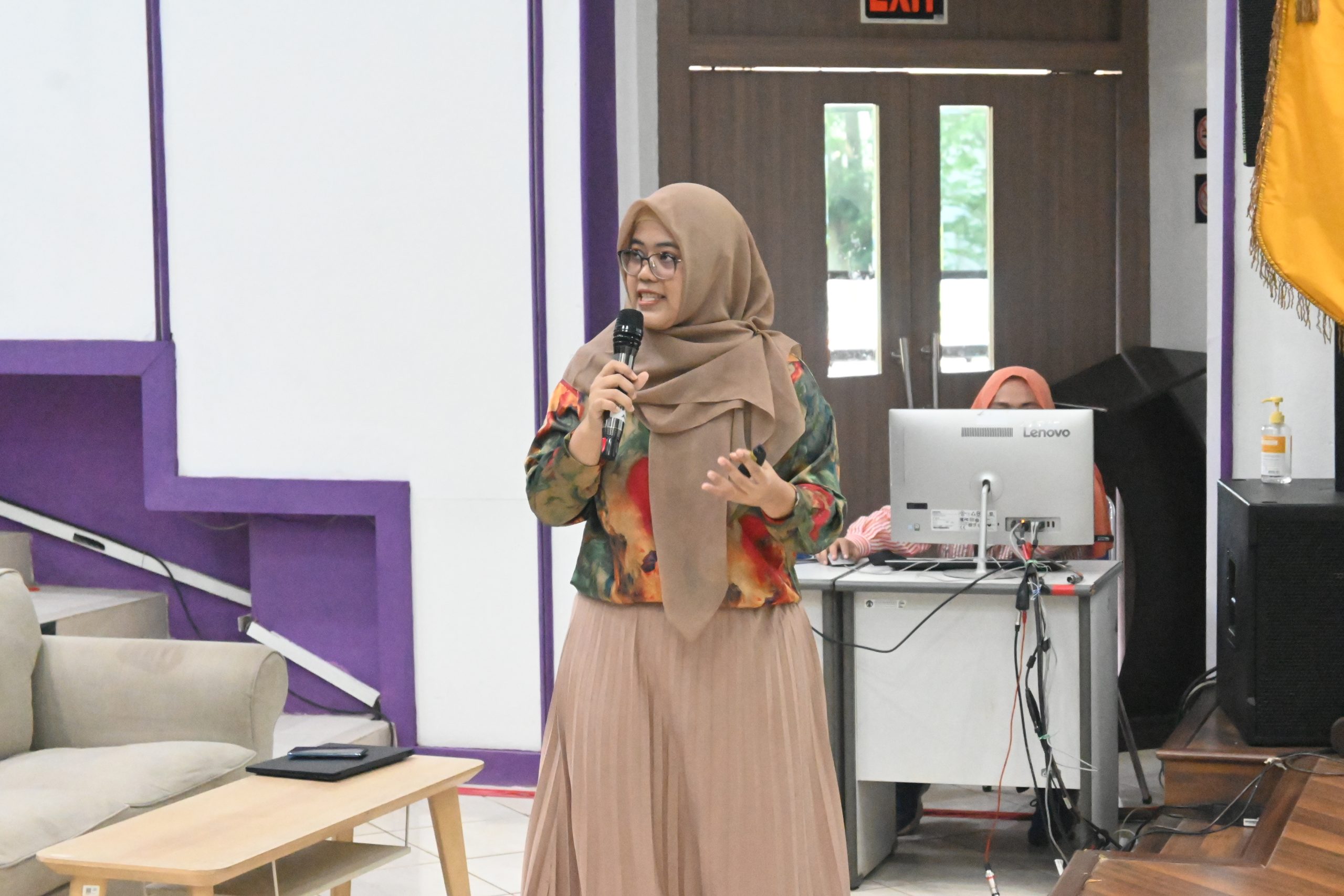On Friday, September 6, 2024, at Building A of the Faculty of Public Health (FPH) at the Universitas Indonesia (UI), the Griseta Posbindu (Griya Sehat Kita) program was held again in collaboration with Mitra Keluarga Hospital, Depok. The collaboration with Mitra Keluarga Hospital involved health screenings, including blood pressure, blood sugar, cholesterol, and uric acid tests. The event began with a Health Talk delivered by Fitri Kurniasari, S.K.M., M.K.K.K., Ph.D., a lecturer at the Department of Environmental Health, FPH UI, titled “Hygiene and Food Sanitation.” Griseta Posbindu at FPH UI is a regular health check-up program aimed at raising awareness and preventing diseases among the academic community and the extended family of FPH UI.
Speaking about hygiene and food sanitation, Dr. Fitri Kurniasari explained their relation to the transmission of diseases that can threaten health. Hygiene refers to individual efforts to maintain cleanliness, while sanitation refers to efforts to maintain the cleanliness of the surrounding environment. The presence of various types of contaminants in food can lead to foodborne diseases that pose health risks. These contaminants are categorized into three types: biological (bacteria, viruses, protozoa), chemical (heavy metals and food coloring), and physical (hair, nails, and body parts of pests).
Foodborne diseases are health disturbances or illnesses caused by consuming food that has been contaminated. These disturbances can manifest in the form of diarrhea caused by bacteria like E. coli and Shigella, cholera caused by Vibrio cholerae bacteria, typhoid fever caused by Salmonella typhi bacteria, hepatitis A caused by the hepatitis A virus, and mycotoxins caused by certain types of fungi/molds.
“The issue in the Greater Jakarta area is that the distance between wells and septic tanks is very close, which causes contamination, meaning the well water is contaminated by the septic tank,” Dr. Fitri Kurniasari explained a current phenomenon.
“Therefore, there are things we need to pay attention to and do to prevent the spread of contamination, starting with the food handlers, the people who cook and eat, the food facilities and equipment, the food processing, and how we process the food,” Dr. Fitri added.
Measures that food handlers, cooks, or eaters can take include maintaining hand hygiene, keeping nails clean, not wearing jewelry, maintaining clean clothing, not smoking, tying hair back, and covering open wounds. In terms of food facilities and equipment, food utensils should be clean and made from materials that are not hazardous, stored in a closed place, and protected from contamination, insects, and rodents. Furthermore, food storage should ensure that cooked and raw food are kept separately.
Similarly, in food processing, efforts should include sorting good food ingredients, storing food properly, and serving food in ways that prevent contamination. (ITM)

